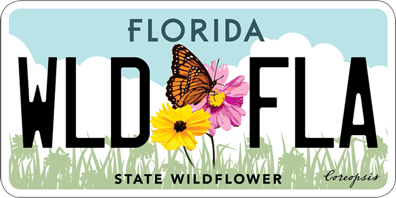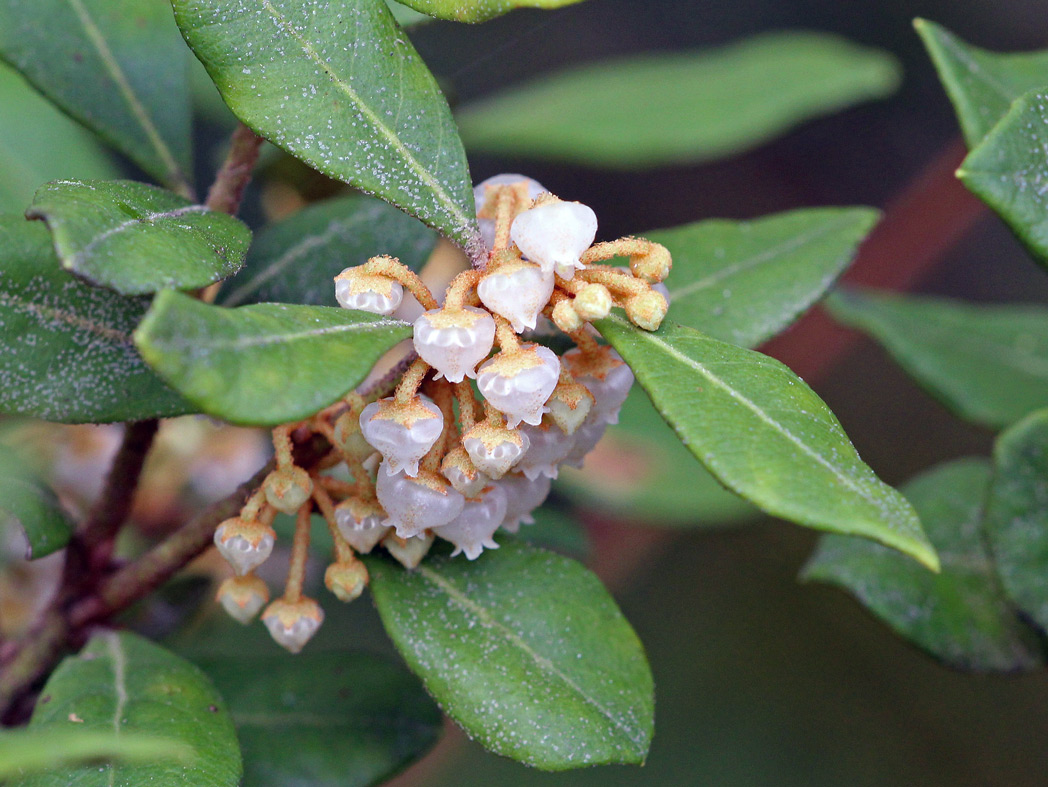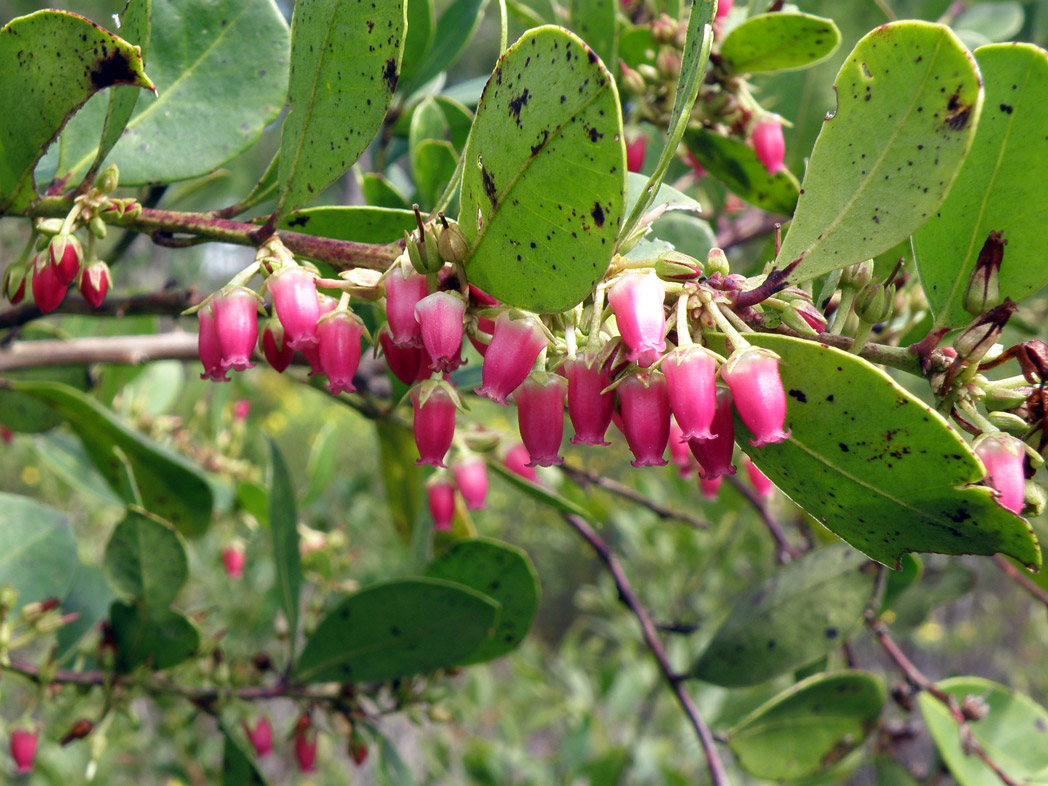Rusty lyonia
Rusty lyonia (Lyonia ferruginea) by Mary Keim. Click on terms for botanical definitions. View post as a PDF.
Also known as Rusty staggerbush, Rusty lyonia (Lyonia ferruginea) is a long-lived evergreen flowering shrub. It occurs naturally in scrub, scrubby flatwoods, xeric hammocks and moist pine flatwoods. Flowers typically appear in spring and are attractive to butterflies and bees; fruits are eaten by birds and other wildlife.
Rusty lyonia’s small flowers are white, urn- or bell-shaped and borne in clusters. They have a faint-but-pleasant rose-like fragrance. Leaves are dark green, leathery and elliptic to oblanceolate. They are alternately arranged. Leaf margins are entire and can be flat, wavy or strongly revolute (typical). All parts of the plant have a rusty pubescence, but it is most prominent on leaf undersides. Newly emerging leaves also have a rusty color. Trunks are usually crooked or irregularly shaped. Fruit is a small oval capsule.
The species epithet ferruginea is from the Latin ferrugo (ferrum), meaning “rust” or “iron”. It, along with its common descriptor “rusty,” refers to the many rust-colored hairs that cover the plant’s leaves, stems and trunk.
Family: Ericaceae (Heath or heather family)
Native range: Panhandle, north and central peninsula
To see where natural populations of Rusty lyonia have been vouchered, visit florida.plantatlas.usf.edu.
Lifespan: Perennial
Soil: Moderately moist to dry, acidic sand, loam or clay
Exposure: Full sun to minimal shade
Growth habit: 6–10’+ tall, spread is about half as wide
Propagation: Seed
Florida regions of landscape suitability: North, Central
Garden tips: Rusty lyonia is a low-maintenance shrub that is adaptable to both well-drained and poorly drained soils and is highly drought tolerant. Its size and irregular shape make it suitable for naturalistic landscapes and border plantings. It does not spread readily by self-seed, but it does have a tendency to sucker.
Plants are occasionally available from nurseries that specialize in Florida native plants. Visit www.plantrealflorida.org to find a nursery in your area.
Learn more about Rusty lyonia from the Florida Native Plant Society and the Institute for Regional Conservation.
For information on other Lyonia species, see these resources:


